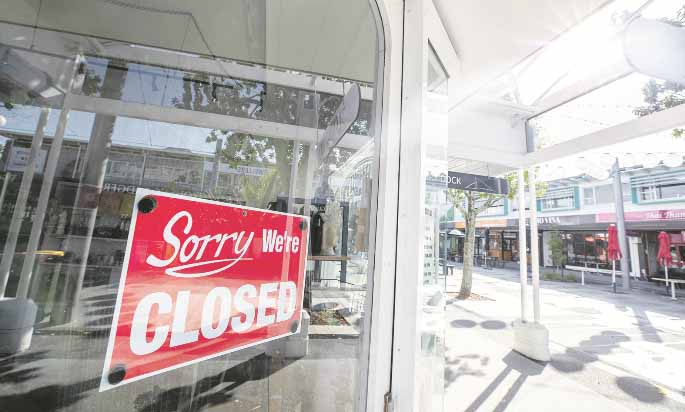 |
Nigel Tutt Chief Executive of Priority One |
The recent return to lockdown was not unexpected by many Western Bay businesses, but the swift nature of it may have caught some by surprise.
A few hours doesn't leave a lot of time to shut down a factory or find a home for fresh produce. Unfortunately, many of those most affected are smaller businesses, with less capability to bounce back, and they will need to take every bit of the wage subsidy and resurgence payments they are eligible for.
It's hard to know how the scale of this lockdown will affect the economy, but Treasury estimates are useful – level four is thought to reduce economic activity by 26 per cent, and level three by 14 per cent.
Retail and hospitality spend will be hit hard, and locally we think it will reduce by about $20m per week in level four – around half of what would normally be spent. Again, it's the smaller businesses that miss out.
Businesses have been a lot better prepared for lockdown this time though, and the capacity to have staff working from home is much better. Businesses also come into it with the knowledge that our overall economy is in good shape and that we will bounce back relatively quickly.
Domestic demand has been very strong over the last year, which has helped many businesses out.
Last year's lockdown saw a sharp rise in unemployment, but I don't think we'll see that this time. Most businesses know that the economy will bounce back. The lockdown is shorter, and staff were in short supply just a couple of weeks ago.
It'll be a testing ride into the end of the year though; there's no guarantee that we won't get another lockdown before the end of 2021 and we are still a very long way from being able to open up to the rest of the world.
This is important for a trading nation, especially when the rest of the world is opening up.
There are a couple of things that people can do to help local businesses out.
Firstly, keep spending locally – we saw the consumer sector of the economy propped up by this over the last year and we need to keep it going. We can do this in level three and four, and good examples might be buying a voucher at a shop for use later, supporting a local restaurant doing takeaways in level three, or prioritising a local vendor over a national one, even if it costs a little more.
Secondly, get vaccinated. With the Delta variant we will need a very conservative strategy until we have enough of the population out of the firing line. While we don't know exactly what freedoms a high level of vaccinations will buy us, we know what will happen if we don't – more lockdowns with the accompanying damage to businesses, mental health, livelihoods and our lifestyle.
Beyond that, we need strong vaccinations to eventually open the border, which will benefit our exporting businesses and tourism sectors.
For some perspective, despite this setback New Zealand is still the best place in the world to be – we're resilient, starting from a great base and I have every confidence we will fight our way back.

Photo: John Borren.

